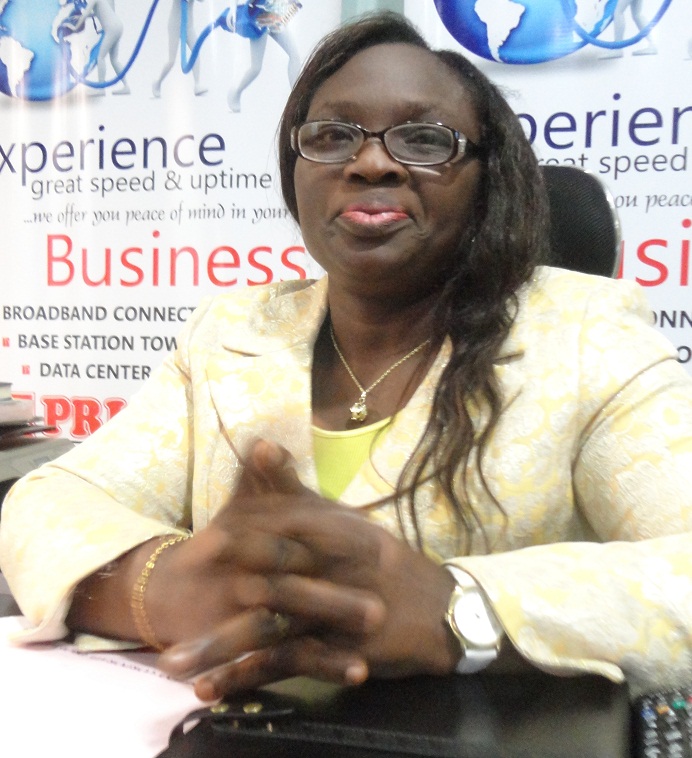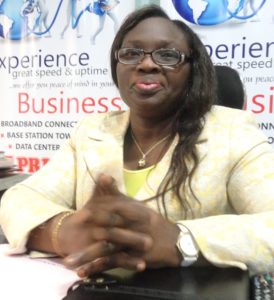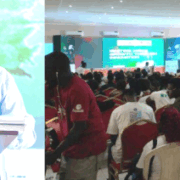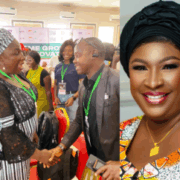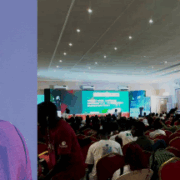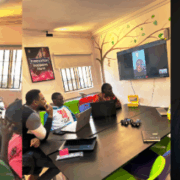MD/CEO of Priority Communications Limited, Olumide Bimbo Samuel, in this interview with IT Edge News, Anthony Nwosu, talks about the challenges facing indigenous ICT firms and how government can help grow confidence in local ICT companies.
Tell us about Priority Communications Limited.
Priority Communications Limited is a leading information communication technology services provider in Nigeria. We have expanded our operations to some African countries in line with the vision to be the best networking communications services provider in the African sub-region. We provide products and services geared towards the development and utilization of broadband computer technologies that offer fast, efficient, effective and easy access to business enterprises in the delivery of prompt services to their various customers anywhere and anytime. We provide IT consulting, point to point link, point to multi point link, Local Area networking, Wide Area Networking, fibre, Disaster Recovery System (DRS), installation & building of communication tower/mast. I can categorically say that we are a holistic ICT firm in Nigeria.
Why is the cost of last mile broadband high in Nigeria?
The problem is that everybody is laying fibre; to lay fibre is not cheap and there are a lot of other factors too. Most of these firms do not have the required expertise to handle fibre. I think that we should have adequate training especially in area of laying the communication infrastructures. Government direct intervention in terms of building the necessary infrastructure will also help to drastically reduce the cost of broadband in Nigeria.
What do we say about ICT contracts that should have been given to Nigerian firms which is awarded to foreign firm and they in turn sublet these contracts to indigenous ICT firm?
This is the bane of our development. Nigerians believes that once you have a fairer skin that you have the capacity to deliver. This is the mentality of our people. Once the guy is white people are ready to listen to him rather than listening to Nigerian firm. We have gone to a meeting for business and the client was asking for our expatriate. But we proved ourselves to the client he became convinced. I think this has to do with orientation of our people. We have been having foreign partners and most of these multinational ICT firm wants to come into Nigeria using us. I think this orientation needs to be changed and earlier we start believing in ourselves the better for us. But I feel that with time this kind of orientation will change. Our standard policy ensures that we conform with best international standard practice to our numerous clients. We have the best hand for the job. And I believe that there are Nigerian
What do you say about ICT contracts that should have been given to Nigerian firms which are awarded to foreign firms which in turn sublet these contracts to indigenous firms?
This is the bane of our development. Nigerians believe that once you have a fairer skin that you have the capacity to deliver. This is the mentality of our people. Once the guy is white people are ready to listen to him rather than listening to the Nigerian firm. We have gone to a meeting for business and the client was asking for our expatriate. But we proved ourselves to the client and he became convinced. I think this has to do with orientation of our people. We have been having foreign partners and most of these multinational ICT firms want to come into Nigeria using us. I think this orientation needs to be changed and the earlier we start believing in ourselves the better for us. But I feel that with time this kind of orientation will change. Our standard policy ensures that we conform with best
international practice to our numerous clients. We have the best hands for the job. I believe that there are Nigerian firms that are capable to deliver top notch jobs that are in line with global best practice.How can government help to address even this challenge?
I think the government can be of help in terms of providing more seminars, exhibition and other fora where they can showcase Nigeria firms more; this will be a wonderful approach. Government can help to boost faith in indigenous firms. Priority Communications isn’t just any indigenous firm. We are a fully established and structured organization. If government can invest seriously in this aspect, it will go to a long way, enlighten and educate our people, give them the conviction that even indigenous ICT providers can do much better than the foreign ones. For us, we believe in training our staff both inside and outside the country, because technology advance everyday and we have to be updated on what’s going on in and around the world.
Are you looking at expanding into other African countries?
Expansion is great. Yes, we are making inroads in some of the African countries and we understand how important it is for us. We have been able to establish ourselves in Ghana and we have handled a lot of projects there. We are positioning ourselves in Kenya and Gambia. In few years to come Sierra Leone and Ivory Coast will be our next port of call.
What are the challenges you face in various ECOWAS countries like Ghana and Nigeria?
In Nigeria one major challenge that is peculiar to organizations is power supply which though is improving but that is a major problem. We have to run on diesels when there is no power and we all know that diesel is pretty expensive. If there is constant power supply, businesses will thrive. The insecurity in some parts of the country, especially in the north where we have some of our installations, it is always a big issue to want to go and install or restore a link in those areas where life is not safe. Another crucial challenge that I have seen is the training of staff. We keep having situations where we keep training our staff and after this training the staff will leave for another organization, sometime a competitor. We might have a contractual agreement with these staff but they may not follow it strictly, and if they do, they will not work with their mind and thereby constituting nuisance.
In Ghana, I think that they have the aversion or do I call it phobia for Nigerian organizations. They have a feeling that the jobs that they are meant to do that Nigerian organizations are taking over. In terms of presence I must be honest Nigerian organizations are making impact. But they still love Nigerians coming in to do business in their country, in our office all our staff members are Ghanaians with just one Nigerian so we don’t have that problems, so to speak. They take thing easy in Ghana and of cause they say slow and steady win the race.
In terms of skills are Ghanaians better compared to Nigeria?
I don’t think so. I feel Ghanaians are good people with good reception. They are just a bit laid back unlike Nigerians wanting to do things very fast. Ghanaians take things easy as it comes; do one thing at a time, but Nigerians can do two, three businesses simultaneously. Maybe because of that, there might be concerned but apart from that they are good people and their skills are growing. There is no way you can compare the countries because Nigeria is bigger and is most populous black nation in the world, so there are different types of skills more readily available here.
Data centre is catching on now. Are you into this and apart from ICT firms do you have solutions for other sectors?
We encourage firms not to spend so much into data centres at their premises. We encourage them to use their data storage in our facility. Ours is to ensure that we get their data protected. That is basically what we do. We have data centres and we have disaster recovery system that can recover data in a very short time in case of data loss. So for us it is pointless for firms to spend so much when they can actually reduce cost with us. We have solutions for SMEs and we encourage them to have their data in our system. We tell them come with any ICT issues and we give you the solutions. We are working with some private organizations that are small scale and they enjoy our services. And for other sectors, the solution is the same because every firm has their own peculiar challenges. So we can encourage them to have a disaster recovery to replicate their data in other locations, other than the original location, incase the unexpected happens, information stored will not be lost because the disaster recovery will automatically help in having another functional data management system to rely on thereby ensuring business continuity.
How do you feel as a woman working in a male dominated engineering sector?
Well, I keep getting this question every time. I don’t think that there should be any issue concerning the gender, since this is a corporate environment and what matters is the job to be delivered. I have seen a lot of women engineers doing some tedious job; and they that don’t mind working long hours on site. A lot of ladies are coming out now and even school children are interested in ICT, I think ICT isn’t for men alone. It’s all about intellectual ability and the passion for it.

